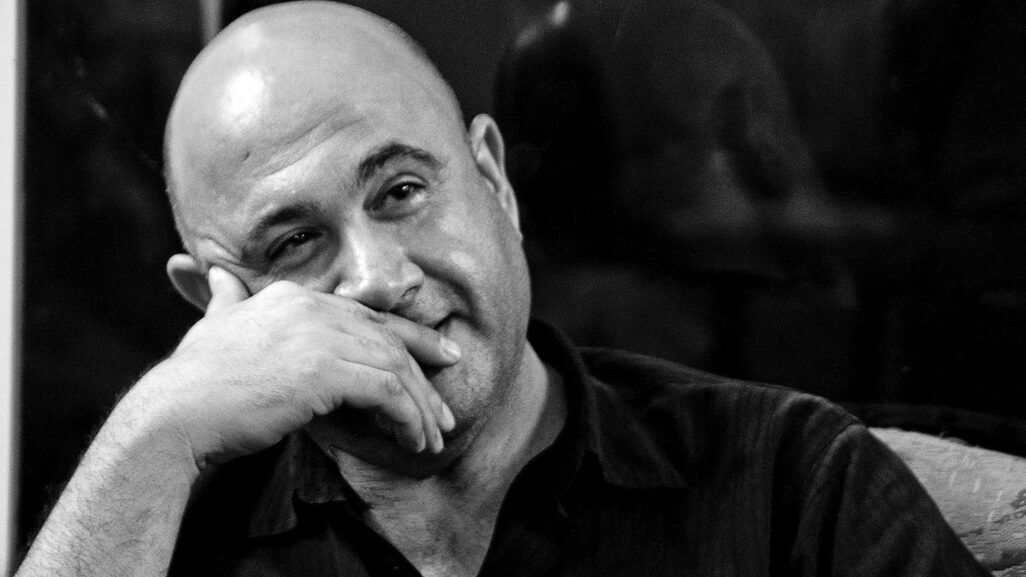
50 years have passed since the heyday of the Israeli Black Panthers movement, which fought racial and economic discrimination against the Mizrahi community. According to Dr. Sami Shalom Shitrit, one of Israel’s most prominent scholars of the Mizrahi struggle, this historical moment set political and social precedents in Israel. Its broad impacts across society include the advent of civil rights associations and wide social protest movements, laying the groundwork for the 2011 social protests, as well as the rise of the Likud party as a popular movement.
Davar sat down with Dr. Shitrit to explore his analysis, which examines the ongoing struggle of the Mizrahi community in the heart of what it means to be Israeli.
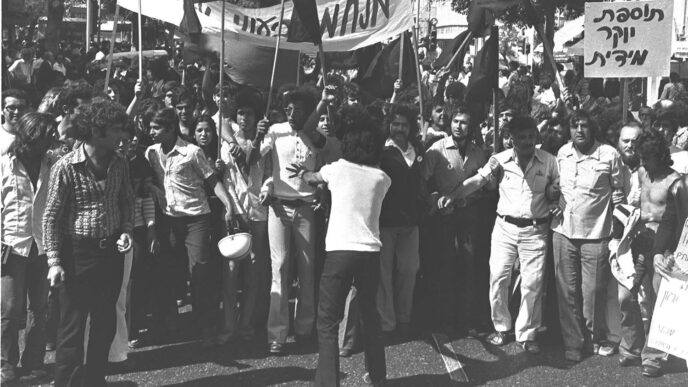
You divide Israeli history to before the Panthers and after the Panthers. What was it about this protest that made it so significant?
"First of all, there had never been a wide protest movement or social movement in Israel before. There were protests against the [German] reparations. There was also the Wadi Salib riot in '59 [against police violence towards Mizrahi residents of Haifa]. That was a first-generation revolt.
“There were local protests around limited issues. It's not that everything started in '71. But there were no wider movements. We had never before seen the Panthers' demands for social justice.
"Until '73, there were also no protests against wars. This was a state-oriented period. All the left-wing poets, whose poems I love, did not dare write an anti-war poem before '82. This ‘redemption government’, with Ben-Gurion at the helm, had a mythical touch. It took the Yom Kippur War to bring them crashing down.
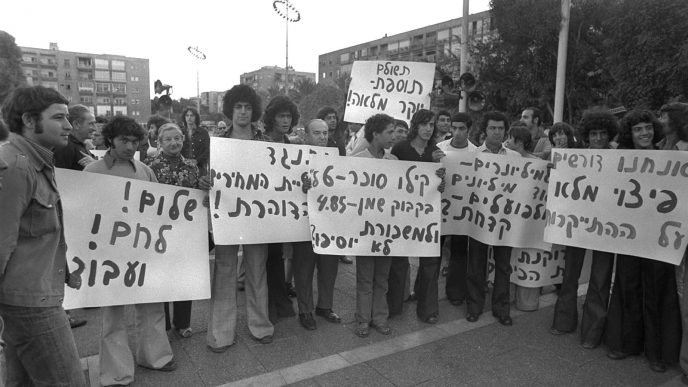
"It's also because the government was socialist, first and foremost in its own eyes, but not only. They did many beautiful things then, which today we can only dream of. How can you protest against a socialist government? There were public construction projects, public health, public education, albeit only until the age of 15, but still. And there was a government that takes care of workers. So why would you demonstrate or revolt or demand something that already exists? Unless you're not exactly enjoying it.”
According to the national poverty report in 1971, when the Black Panthers began, poverty rates were high, with some 30,000 families living below the poverty line without any kind of welfare. Only 18,000 families received welfare, which means that most of the poor who needed state aid did not receive it at all and had to fend for themselves.
It’s also important to note that these protests came from the backdrop of a period of economic growth after the Six Day War, the benefits of which were not shared equally. The Black Panthers brought public attention to these issues.
"That's why the Panthers caught on like wildfire. People they had never met held protests, called themselves Black Panthers and asked to meet them. They became people who travelled all over the country. In the Histadrut elections, they won seats in the leadership, which began to worry the establishment."
This was also the first time that the call for social change expanded from just the people in distress.
"It was a very romantic affair. All the people sitting in Cafe Tamar in Tel Aviv started showing up. They saw the student uprisings in Paris while Israel was holding military parades, and decided to go and lend a hand to the Panthers.
“It was unexpected. What does a Tel Aviv writer or poet have in common with poor, Mizrahi boys in the Musrara neighborhood of Jerusalem? Malcolm X said that a protest starts from the stomach, and whoever isn’t hungry, why should they demand a change? But it excited them.”
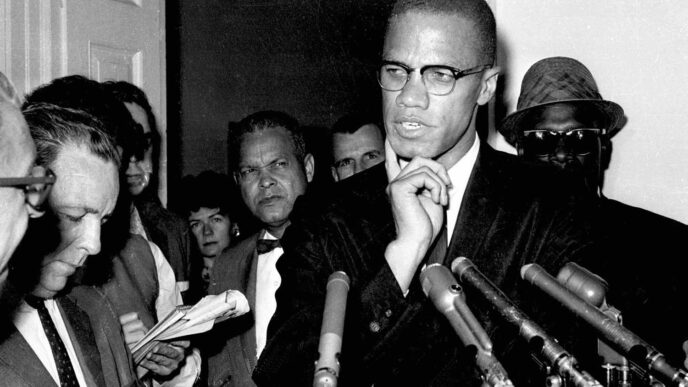
"They were also joined by immigrants from South America, socialists who heard the slogans 'End Poverty' and understood the meaning of struggle. People who returned from studying abroad, from protests on campuses, and joined in.
“The Panthers really enjoyed hearing that similar things were happening in the world. And suddenly, new relationships began. People from around the world tried to get in touch with them, to hear what's going on. Underground groups from Italy, Germany and Japan were looking to hear from them."
The government recognizes the Panthers, and meets their demands
What change did this protest create?
"It had a radical effect. Before the Panthers, there was no extra-parliamentary politics. There were no civil rights associations. These were things that are evolving, and you have to ask what caused them, what precedent.
“During the Panthers’ protests, the tent protests in Jerusalem and a variety of other new initiatives began. Neighborhood committees, demonstrations. I remember that my father, who was a Histadrut worker for many years at the port, set up a neighborhood committee and went to protest in front of the municipality, claiming there were no sidewalks, no lighting.
“The establishment of the Association for Civil Rights and other organizations established by Ashkenazim – this happened in the period after the Panthers, it didn’t come down to them from above. It came from a cumulative atmosphere in the 1970’s, which the Panthers created. They also had a radical effect on the political system.”
Where did that start?
“"First of all, the government, Prime Minister Golda Meir, was forced to recognize the protest. It was almost at the level of Rabin recognizing the PLO (Palestinian Liberation Organization). These were not the Wadi Salib rioters, who were labeled as violent bullies, with police files and fatal acts of brutality. Golda meets with the Panthers.
“She meets with five boys, whom Jerusalem mayor Teddy Kollek had previously kicked off of City Hall property. She recognizes them. In that sense, it matters much less what she says in the conversation – 'that they weren’t nice, they smoked all my cigarettes.' The meeting itself has a tremendous effect.
"Everyone condemned Golda in the context of the Panther protest, but I say that she took far-reaching steps in terms of recognizing this protest. In the end, she also fully responded to the demands. As far as Mapai, (one of the socialist parties making up the Labor Movement) is concerned, there was a precedent of completely acknowledging protests. Recognition of the movement, of the people themselves."
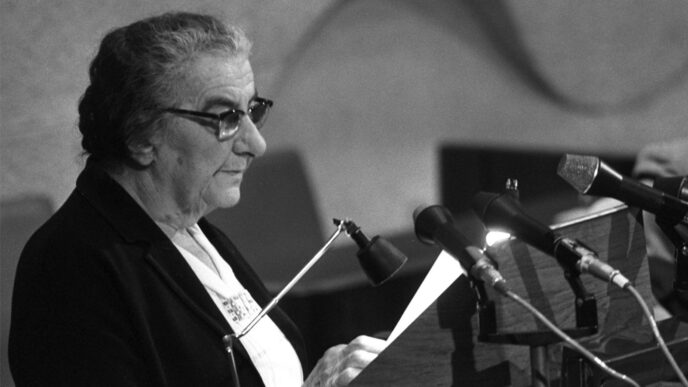
"Golda sets up an unprecedented committee. It has a sham name, the 'Committee for the Investigation of the Poverty of Children and Adolescents.' But the researchers really get into the thick of things, and publish four volumes of research. They will not say the words racism and discrimination, but there are words like neglect.
“There is a laundering of words, but in the end, the conclusions are that a far-reaching change in budget and policy is needed. The '72-73 budget is known as the Panthers' budget. The budget for social issues was doubled and tripled.”
Around 185 million Israeli pounds were added to the budget for welfare services (about 1.2 billion shekels in today's terms). The social safety net remained wide until cuts that came in the mid-1980s.
But that wasn’t enough. History remembers Golda as the one who said they were "not nice," and Mizrahi rage was directed at Mapai.
"I think the mishap of the Yom Kippur War disrupted everything. If Golda had gotten another term, and gone forward with these reforms without the war in the middle, we would have seen a different history.
"Many republics are founded on beautiful documents and initially face terrible discrimination. Black people in the United States based their struggles on the Declaration of Independence and the American Constitution. ‘You consecrated these documents,’ they tell the white people. Same thing with the feminist struggle, it is done in the name of the values that have already been agreed on.
“Here as well. The republic was established. At first, there was a preference for elites who looked similar and neglect of the native people and of those who looked different. But in the end those people stood up and demanded justice. And here, there was no opportunity to fix anything and that is a terrible problem.”
The Likud Party rides the Panthers’ wave
“Then Begin arrives and offers a reform in his own way. What occurred in the party system in the wake of the Panthers, and in the wake of the Yom Kippur War in 1973, is the reality that will lead to the revolution [from Labor’s dominance to Likud’s rise] in the '77 polls. Polls show tremendous support for the Panthers' ideas, but people are unwilling to vote for them.
“The person that recognizes this is David Levy, [Likud politician and Moroccan oleh who led labor struggles in the Mizrahi-dominated city of Beit Shean], who until then was almost anonymous. He says, 'I certainly identify with their struggle, but not with the way it is run'. This is the story of the establishment of the Likud as a mass movement.”
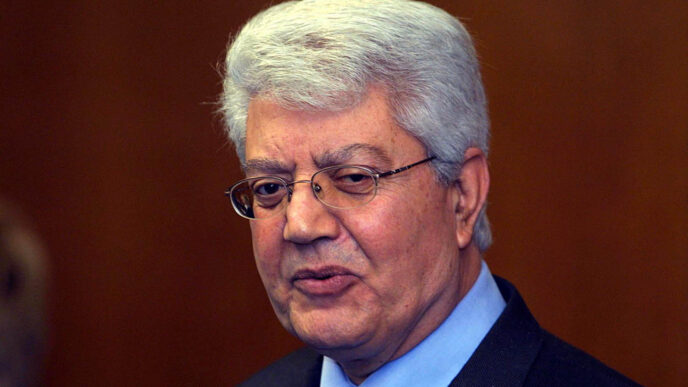
"People did not connect to the Likud's messages before then. Begin spoke well, but people did not get carried away. David Levy understands this and gets to work. This is a radical change of the movement from the left to the right. The younger generation wants to vote differently and comes out to the polls, but what are their options? David Levy stands out in the age of television, and it catches on. There is no David Levy without the Panthers, there is no Likud as a popular movement without the Panthers.
“But the Likud was capitalist. There were people in the party who thought welfare budgets were a terrible waste of money. The Likud brought Milton Friedman, the American economist, to a cabinet meeting, invited him to advise them. What advice did he give? The same advice he gave in Chile and elsewhere – to stop wasting money on welfare budgets and public housing. He proposed dismantling workers' organizations, saying it hurt free enterprise. He was a very bad man.
"No one in the government opened their mouths. Begin spoke of him as a great Jew. The only one who spoke against him was David Levy, who said that this person speaks the opposite of everything we spoke about and promised to our people. Following this disappointment, Shas arose [as a Mizrahi alternative]."
And yet there is very strong Mizrahi support for the Likud Party, to this day.
"The capitalism that the Likud offered did not offer a just system that would reward everyone. But it created an upper-middle class and even an upper class of Mizrahim, which was not there before, which held on to 20 seats for 20 years.
“Obviously, there was also anger at Mapai and there are also psychological issues, but in the end, Likud put bread on the table of these people, which is why they keep voting for it."
Ongoing discrimination against Mizrahis
Where else do you see the effects of the Panthers, other than in the political arena?
"Perhaps the biggest change following the Panthers is in the field of education. Before the protests, 70% of the youth aged 15 and over in the Mizrahi neighborhoods were not in school or any framework. It is inconceivable today. People can not imagine seven out of ten teenagers on the street.
“There were a lot of police on the streets. This is the neighborhood I grew up in. Instead of expanding the Compulsory Education Act, they brought in more police and invented the concept of youth cops. This is a period that is now over. It took time for it to end, ending up with around 7% -6% of youth on the streets, about the world average. This is a great success.
"Now everyone is in school, but the question is what are they doing there. And school still rests on very bad cultural assumptions on which everything is built. These are assumptions about who is more or less capable of cognitive activity. Who is able to learn. The damage these stereotypes have created is false consciousness and false understandings in more than two generations of teachers and school principals.
![Sami Shitrit: “It’s still hard for [teachers] to expect the same performance from a Mizrahi student.” (Photo: Shlomit Carmeli) Sami Shitrit: “It’s still hard for [teachers] to expect the same performance from a Mizrahi student.” (Photo: Shlomit Carmeli)](https://static.davar1.co.il/www/uploads/2021/06/300621_shitrit2-688x387.jpg)
“English is still taught at a level of 3 units for Mizrahi students. Why not 4? What's the difference in effort? In 3 units, you don't learn the language. And if you start in seventh grade, the difference in effort is negligible. The impact of learning English is tremendous on students' sense of competence. The assumption that there are those who are incapable is ultimately racism.”
So the required reform in the education system is to teach English from a younger age?
"Yes, among other things. But the other question is the content. Students who do not find their place in the state curriculum will develop a sense of alienation. A person who does not find himself, his parents, the appearance of his face in the classroom, in the curriculum, in what the state presents him, will develop feelings of inferiority. He will be silenced.
"For all the committees that dealt with it, there has been no significant change. The number of non-Western Arab poems and books in the curriculum is low. The Ministry of Education still thinks that the core of what needs to be learned is Western culture. They believe in telling one, certain history. Beyond the moral problem in this, it also lowers the quality of learning for everyone. It breeds ignorance, and ignorance breeds fear and hatred."
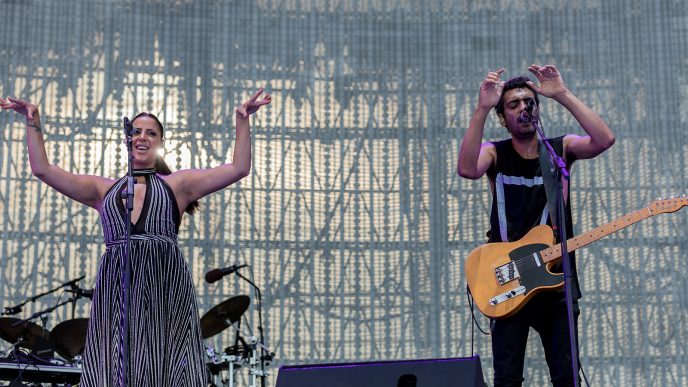
How can things look different?
"You can see the change in the culture. People who have created the heart of Israeli music understand that they have gems at home. Young people whose parents were born here write songs in Moroccan. Micha Shitrit, Dudu Tassa, Netta Elkayam. This is not a reaction. This is not going backwards. That's what could be here, with those roots. "






